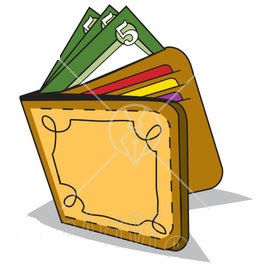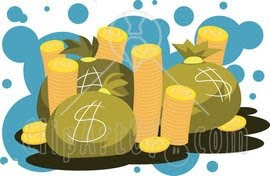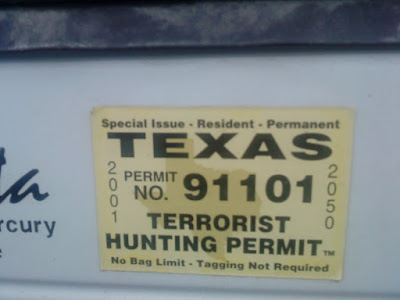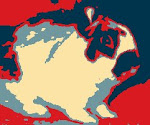Today was my last day at my temp job at the behemoth-megabank-which-shall-remain-nameless. The job ended up being an interesting and educational experience, but I was glad to be done with it. I do want to tell you about a few of the things I've learned. HOWEVER, I am NOT employed by or associated with VISA, nor am I speaking in any official capacity as an agent of any bank and/or business. These are just some tips I learned that I consider valuable to know, and I want to share them with you. (I hope that's enough of a disclaimer to prevent my getting sued or arrested. I hope.)

I worked in checkcard disputes, handling cases dealing with charges to people's debit cards or checkcards--the kind of card the bank gives you (usually labeled with VISA or MasterCard, depending on the bank) that is connected to your checking account. It was nice to help people out when they'd been unfairly charged and gotten into trouble through no fault of their own.
Still, it seemed like we were always seeing disputes against the same old merchants--Internet merchants like those "make money on the internet!" and "Internet Bizkit" places, or all those sites that sell tooth-whitening kits, or the many software download sellers. A lot of these online merchants are scammers; not all, but many. You'll click OK on something, and then they'll hit your card for $1.99, and then before you can cancel that "trial membership," they've hit your card again for $79.99 about six times, and the transactions are set up as recurring billings, so each month, you're getting tagged bunches of times for fees and stuff. And half the time, the customer has never even heard of the company they're being billed by. That got old really fast, man. There's a lot of bad business happening on those Internets.
I saw scams and stuff happen every day, and it was so disheartening. People will sign up for one thing; then they'll get all these pop-up offers for other products and they'll think they're clicking on "cancel," (at least that's what they always tell us), but suddenly they're getting billed by six different places for phantom services and memberships.There's usually no working phone number to call, and so they call their bank in desperation after losing sometimes hundreds of dollars in charges and NSF fees.
The lesson? Be careful what web sites you enter your credit card information on, people! I always found myself saying, "Stay off the internet if you can't keep your debit card number to yourself!" I usually don't buy anything online unless it's through Amazon; I trust them. I never saw one dispute against them in the entire time I worked at the bank. So if I can't get it on Amazon, I won't buy it online. All those TV commercials where you can buy your ShamWow or your magic litter box or whatever online -- just go to Walgreen's or someplace; they usually have an "as seen on TV!" section, and you can buy the item right there and not worry about who's scamming onto your checkcard number.
And it's not just internet merchants who'll screw up checkcard transactions. Today, I handled a case where a woman had gone to her hair salon, paid the bill for $44, and left. No big deal. The merchant charged her $44, she signed the slip, and she thought she was done. That's usually how it works, right? Well, not this time. Somehow, the transaction went through twice on that day, then at least once per day for the next two days before she noticed she was hundreds of dollars short when she went to balance her checking account. (Checkcards are connected to your checking account, so it's all the same thing--only with your checkcard, you have certain consumer protections granted to you by VISA--or Mastercard, whatever your bank uses.)
So she called in, filed disputes, and today I pulled up her cases. She'd caught most of the first duplicate postings (that's what we call it when the merchant charges your card more than once for the same purchase), but there were MORE charges she didn't even know about yet. I called her and told her about them, and we set up some more cases, each time issuing her a provisional credit for the amount of the charge so she wouldn't be missing that money because of the merchant's errors (something that not all banks do, but you should look into whether your bank does that when you dispute a charge--it's nice, especially when make a big purchase like an airline ticket or something and you get double-billed or something). She was charged a total of nine times before I was able to block her card for fraud and order her a new checkcard.
The crazy thing? Each transaction had the same transaction date (the date they actually swiped the card) but different posting days (the day the bank actually takes the money from your account). How is that possible, you ask? Who knows. That's e-banking for you. It's a mystery.
The moral of this story is to watch your checking account history like a hawk. Just the other day, I got gas (pay-at-the-pump), used my checkcard as credit like always, and went on my merry way. The next time I went to balance my account, I noticed that the transaction had posted twice! But I had only gassed up once! Lucky for me, the merchant had caught the error and issued a credit to my account via the card number. All this happened without my even realizing it, and I check my account like every other day! Good thing I wasn't down to a few pennies in my account, or I'd have incurred some NSF fees.
Most times, the merchant doesn't catch an error like this, so it's up to you to watch for duplicate postings. Another important thing: if the merchant hadn't caught the error and instead of using my card as "credit," I'd used my PIN number to make the transaction, I would've been out of luck if somehow the computer banking network or whatever (it's voodoo, man) had charged me twice for the same tank of gas. A PIN transaction is just like cash; you have no chargeback rights if the merchant makes an error. If you're lucky, you can show the error to the merchant and he'll fix it. But if not--you have no recourse. ALWAYS use your card as credit.
Here's another important thing: Merchants are NOT ALLOWED, under their merchant agreement with VISA, to charge extra for checkcard/credit card transactions. So those gas stations that charge a certain price if you pay cash and a higher price if you pay with a card? They are violating the terms of their agreement with VISA, and if you threaten to report them (and I mean don't budge on this! and do it BEFORE you let them run your card!) to your VISA and/or your bank, they should back down and charge you the cash price. Same goes for those "minimum amount to use credit/checkcard" signs you see at lots of restaurants and convenience stores; that too is a violation of their agreement with VISA. If they take VISA, they HAVE to treat your checkcard or credit card the same as if you were paying with cash. Otherwise, it's a fine up to $10,000 per occurrence from VISA. Just run that by 'em.
If they still don't budge, LEAVE. Don't pay a penny more, don't agree to a minimum purchase amount, if you're paying with your VISA-labeled card.
Oh -- one important point on the whole watching your checking account history like a hawk: don't mistake holds (often designated as "pending" in your online account history) for actual posted transactions. Many times, especially when you go out to eat at restaurants, the merchant will run your card once for the amount of the meal, and then run it again for the amount of the meal plus tip. Usually, when they're counting out their tills and balancing the day's transactions and stuff, they'll void out the extra hold (either the one with the tip, the one without the tip, or both--and there might even be a third one with your actual tip amount added in). Usually they void those other holds out. But--not always. You'll have to dispute those.
And here's a crazy thing: if you were to check your account online while you were still at the restaurant, you'd see all those holds--all listed as "pending"--and your account would actually show a balance minus all those hold amounts, as though you'd actually paid for your meal however many times! Again, don't ask me why this happens or how -- it's voodoo! But it does. It's kinda like when you deposit a check and it takes a couple of days to clear before you can touch that money. Anyway, if the restaurant does their accounting right, they'll delete all but your actual transacted amount and those holds will be released and that money will once again be available to you. But until then, it's "pending" or on hold. Watch the holds, but don't think they're the same as posts. They'll usually just vanish by the next time you check online.
Once again, the moral: watch your account history.
A few notes on those "consumer protections" I mentioned earlier. Now, the bank I worked for used VISA for all their checkcards, so that's all I know about.
1. Any purchase you make with a VISA-labeled card is usually refundable for 14 days after the transaction date.
2. If a merchant tries to tell you a VISA purchase is not refundable or an item is not returnable, etc., look at your receipt. Does it have that fact stated on the receipt? If so, is it right there near your signature, or is it on the back of the receipt in tiny print? Or maybe the merchant has it on a sign somewhere near the cash register? Remember this: that non-refundable stuff has to be
right near your signature in order for it to be binding. If it's on the back of the receipt or not on the receipt at all, you have every right to return an item or cancel a reservation or whatever. Your signature is your agreement to abide by whatever terms the merchant decides--but the signature has to be right near those terms in order to show that you agreed to the terms.
3. Plane tickets? Not refundable, not transferable. You're out of luck there.
4. Hotel charges for things like smoking in the room, damages to the room, missing towels, etc.? Unless you sign a receipt for the add-on charges, you can dispute them as unauthorized. When you register for a hotel, you're agreeing to pay for a room. Charges they decide to add on after you've checked out and left (and thus cannot consent to be billed to your checkcard) can be disputed by you as unauthorized. Don't get me wrong: You still the owe the hotel for towels if you steal their towels. But you have the right to decide when and how you're going to pay for those towels. Also note that in order to dispute a charge as unauthorized, the bank will usually have to block your card for fraud and issue you a replacement card. So bear that in mind before you go calling all sorts of things "unauthorized."
5. Rental car places have certain things they CAN add on to your bill--because their contracts state it and you've usually had to initial things on the contract like refueling fees, traffic tickets you get while in possession of the car, or late-return charges. However, they can't charge you for damages to the vehicle, smoking in the vehicle, etc. without your consent. Again, you do owe them the money, but you decide when and how to pay it.
6. When you do see something funny on your account history, call the merchant first. Do whatever you have to -- show them a printout of your duplicate posting or whatever -- to resolve the issue yourself. If the merchant is a dick about it, THEN go to your bank. VISA requires you to make a good-faith effort to resolve the issue yourself before you bug them (via your bank) about it. When you go to the merchant, go armed with your receipt, a printout from your online banking, or whatever -- take the necessary information to show the merchant that he/she has made a mistake.
7. If you're paying a bill by phone or online (remotely), any error your make -- entering an extra zero, paying the wrong merchant (it happens all the time!), etc. -- is NOT disputable. That's your error, and the bank can't help you with it because you participated in the transaction.
8. SAVE YOUR RECEIPTS. For everything! Cash, credit, debit cards, checks, whatever -- save your receipts until you've seen the charge clear on your online banking, AND you've allowed a little more time for any e-banking goblins to make merry with your checkcard number. I save my receipts for the month; once I've seen them clear and the month is over, then I'll get rid of them.
9. As many disputes as we dealt with each day, they comprised only a tiny fraction of the number of checkcard transactions that go through without a hitch each day. Until that weird pay-at-the-pump thing happened, I'd NEVER seen anything wrong on my bank account. Of course, I didn't used to check it quite so carefully as I do now! I would just say stuff like, "Hmmm. I don't remember that charge... but there it is, so I must've made it!" I look back at myself and hang my head in shame.

Take care of your money!
























 I may just have found another foreign TV beauty for
I may just have found another foreign TV beauty for 




